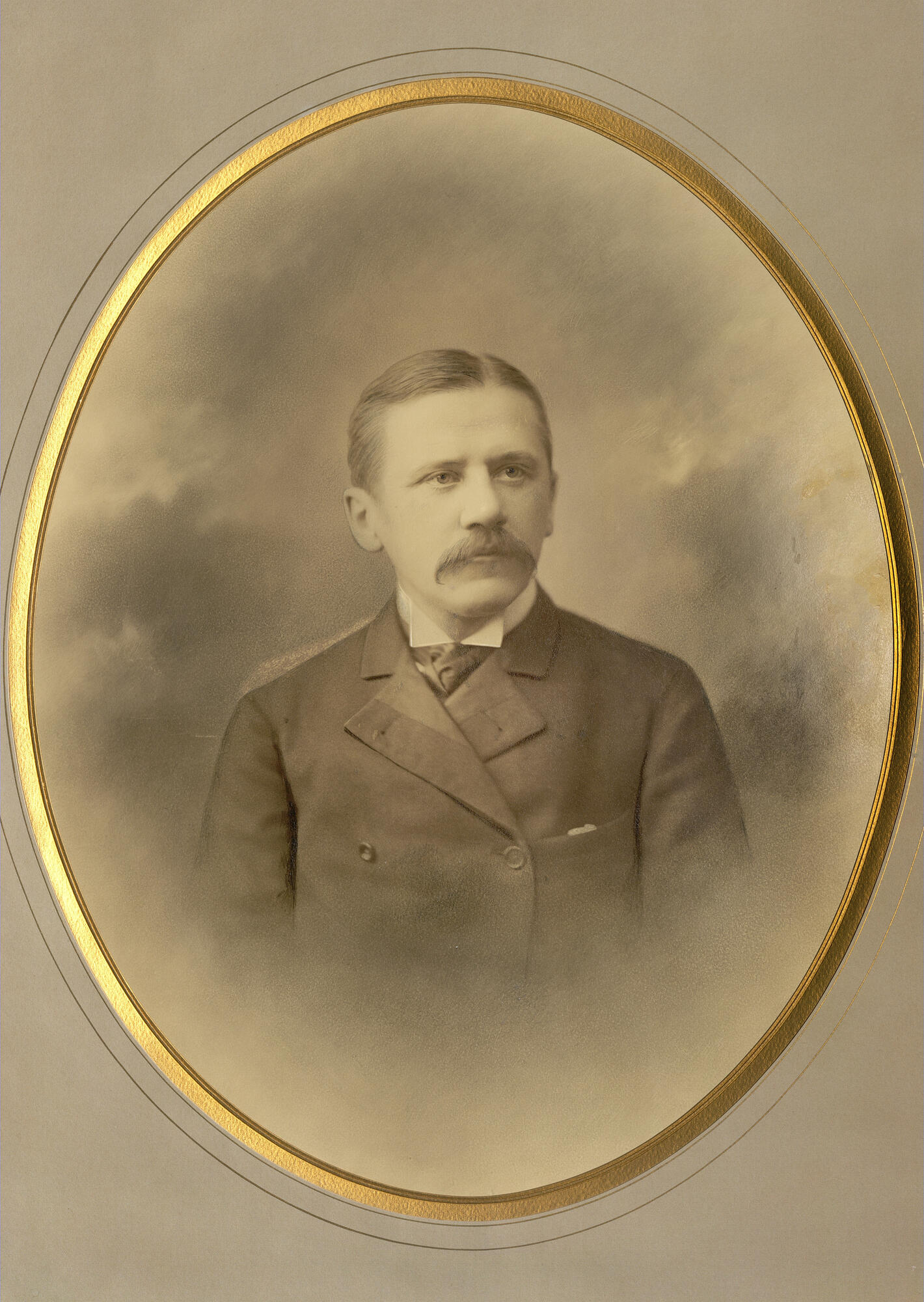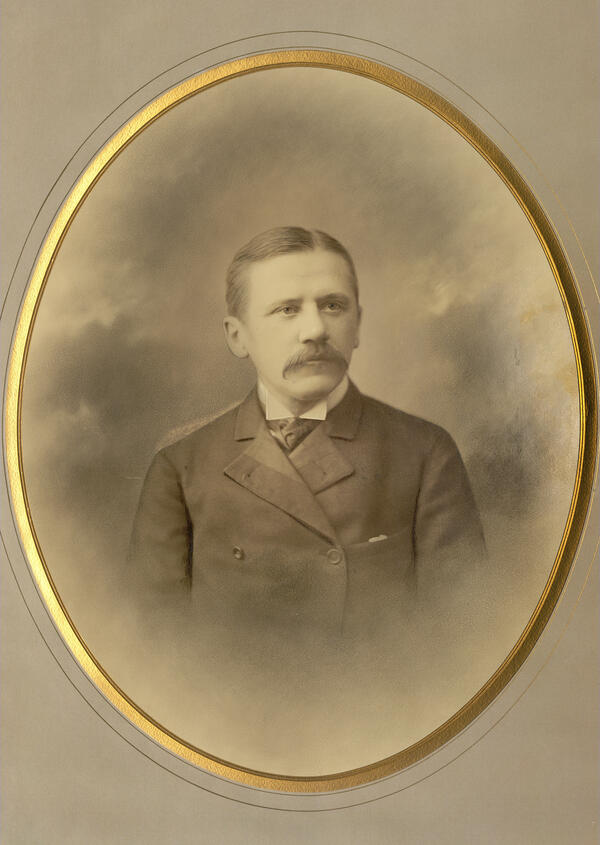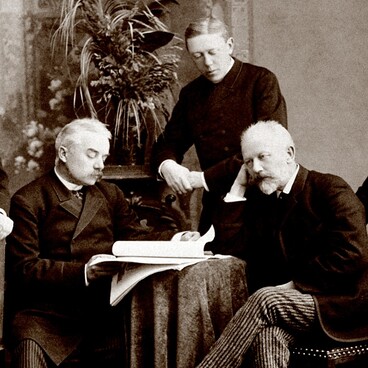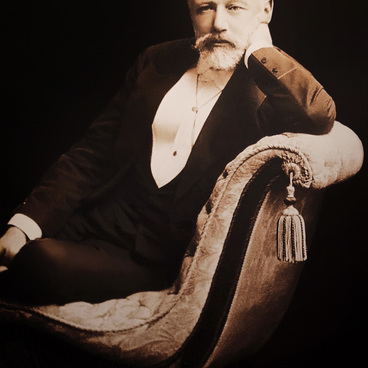Modest Tchaikovsky was one of the youngest twins (Modest and Anatoly) whom the composer was especially attached to.
Their mother, Alexandra Andreevna Tchaikovskaya, died when the twins were only four years old. Pyotr Ilyich was shaken by that loss and looked after his brothers, trying to make up for the lack of motherly care.
Modest Ilyich, as well as Anatoly, graduated from the School of Jurisprudence. But unlike his brother, he was not a diligent student (which is why his studies took a year longer compared to Anatoly’s) and subsequently hardly paid any attention to the service.
Pyotr Tchaikvsky was concerned about his younger brother’s future and tried to reason with him in every way he could. He was trying to convince the young man to stop wasting time and money on entertainment and take his service seriously. But Modest never committed to it–he did not like jurisprudence. Fortunately, several years later, he discovered he had an inclination for teaching.
At the suggestion of Herman Karlovich Konradi, Modest Tchaikovsky started teaching Herman’s deaf and mute son, Nikolai. Modest completed a course and learned sign language interpretation in Lyon, at Hugentobler Private School. Thanks to Modest’s efforts, Nikolai Konradi was able to communicate with people around him, and later successfully graduated from a university.
But teaching was not the only talent of Modest Ilyich. His second gift was literature: he wrote novels, plays for theaters, librettos for operas, including for Tchaikovsky’s The Queen of Spades and Iolanta.
Pyotr supported Modest’s literary activities in every way and appreciated his talent. After their mother’s death, he looked after the twins as if they were his own children.
The twins loved the composer just as much: after Pyotr’s death, Modest Ilyich turned Tchaikovsky’s last residence–the house in Klin–into a museum. Modest kept the building fully intact; he also collected the brother’s manuscripts and wrote his first biography.
Before his death, Modest Tchaikovsky bequeathed the museum to the Russian Musical Society, on condition that they kept his brother’s rooms intact. Modest Ilyich did not believe that the museum would exist for a long time. He thought the collection he had gathered would not last for longer than seventy years, for as long as people who knew the composer personally were alive.
Their mother, Alexandra Andreevna Tchaikovskaya, died when the twins were only four years old. Pyotr Ilyich was shaken by that loss and looked after his brothers, trying to make up for the lack of motherly care.
Modest Ilyich, as well as Anatoly, graduated from the School of Jurisprudence. But unlike his brother, he was not a diligent student (which is why his studies took a year longer compared to Anatoly’s) and subsequently hardly paid any attention to the service.
Pyotr Tchaikvsky was concerned about his younger brother’s future and tried to reason with him in every way he could. He was trying to convince the young man to stop wasting time and money on entertainment and take his service seriously. But Modest never committed to it–he did not like jurisprudence. Fortunately, several years later, he discovered he had an inclination for teaching.
At the suggestion of Herman Karlovich Konradi, Modest Tchaikovsky started teaching Herman’s deaf and mute son, Nikolai. Modest completed a course and learned sign language interpretation in Lyon, at Hugentobler Private School. Thanks to Modest’s efforts, Nikolai Konradi was able to communicate with people around him, and later successfully graduated from a university.
But teaching was not the only talent of Modest Ilyich. His second gift was literature: he wrote novels, plays for theaters, librettos for operas, including for Tchaikovsky’s The Queen of Spades and Iolanta.
Pyotr supported Modest’s literary activities in every way and appreciated his talent. After their mother’s death, he looked after the twins as if they were his own children.
The twins loved the composer just as much: after Pyotr’s death, Modest Ilyich turned Tchaikovsky’s last residence–the house in Klin–into a museum. Modest kept the building fully intact; he also collected the brother’s manuscripts and wrote his first biography.
Before his death, Modest Tchaikovsky bequeathed the museum to the Russian Musical Society, on condition that they kept his brother’s rooms intact. Modest Ilyich did not believe that the museum would exist for a long time. He thought the collection he had gathered would not last for longer than seventy years, for as long as people who knew the composer personally were alive.



